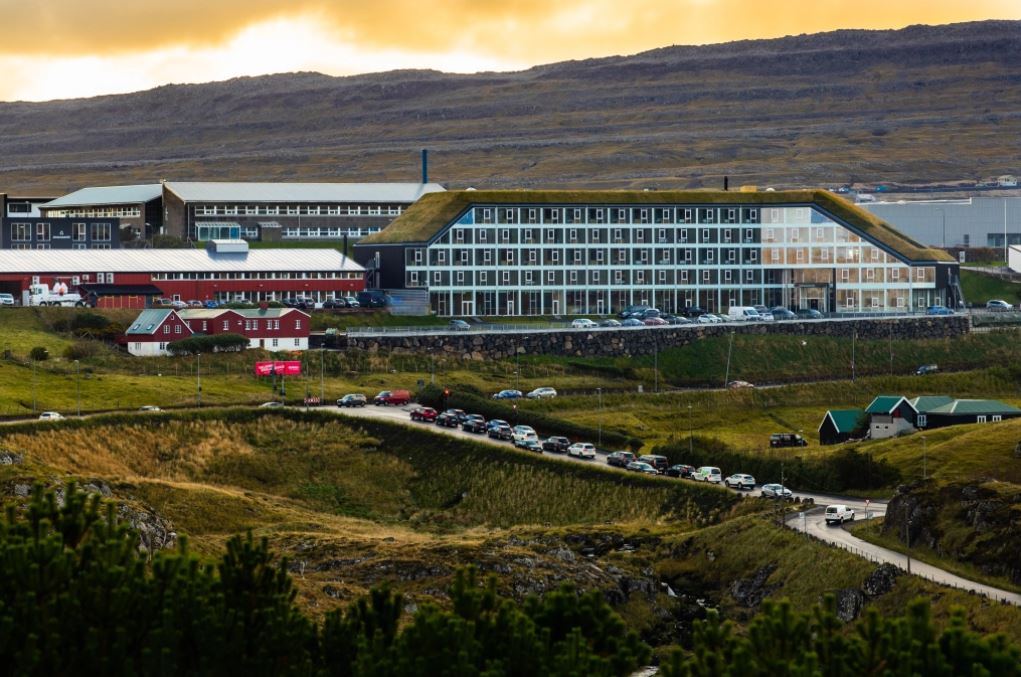Sustainability: Driving the Future of Sustainable Travel + Events
Hilton Garden Inn Faroe Islands
Hilton’s recent global trends report affirmed that, more than ever, travelers, travel managers and event planners are prioritizing brands that are environmentally conscious and doing their part in communities. Around the world, people are seeking sustainable solutions across the entire travel journey – from reducing waste by recycling soaps to lessening the carbon footprint of an event by making more sustainable choices.
As one of the world’s largest hotel companies, Hilton recognizes the critical responsibility to protect local communities and the planet so that the destinations where they operate can remain vibrant and resilient for generations to come. That’s why through Travel with Purpose, Hilton’s Environmental, Social and Governance (ESG) strategy, the company is continuing to drive responsible travel and tourism, globally.
For more than a decade, Hilton has utilized a proprietary ESG management system, LightStay, to measure and manage the environmental and social impact across the global portfolio and has reported on this annually in their ESG Report. Their sustainable meetings offerings, including Meet with Purpose, present customers with sustainable travel resources and solutions, like how to host carbon neutral meetings. Additionally, the LightStay Meeting Impact Calculator is a meaningful tool for event planners interested in generating customized estimates of their event’s environmental impact.
For those traveling for work or play this year, consider these uniquely sustainable experiences and properties within the Hilton portfolio:
ADVERTISEMENT
Soon to be re-opened for the summer, the SUMMIT Rooftop at Conrad Washington, D.C. takes eco-friendly cooking to the next level. Here, Chef Josh Murray uses a solar-powered oven to cook mouthwatering barbeque featuring locally grown produce, including herbs grown on the rooftop garden, from May to October. As part of Hilton’s commitment to double its social impact investment by 2030, the hotel will also partner with DC Central Kitchen on a culinary internship and training program for youth.
At Hilton Brisbane in Australia, environmental initiatives range from recycling soap through Soap Aid, single-use plastics through TerraCycle, single-use coffee cups through Closed Loop and single use containers through Envirobank. Depending on occupancies, the hotel diverts up to 10,000 items a month from landfills and can fund environmental and social justice projects with the funds generated. Hilton Brisbane also has five beehives with 250,00 pollinators that produce 500 kilograms of honey a year. The honey is used as a gift for guests, as well as in the hotel’s kitchens, alongside produce that is grown on-site.
Leftover power from a local power plant and the heavy winds from the North Atlantic are used to provide heat and electricity to Hilton Garden Inn Faroe Islands. Its natural grass rooftop offers insulation and its glass facade and use of stones harvested from the area blend the property into the landscape. Water-saving showers and motion-sensor taps minimize water waste throughout the property, and the hotel’s head chef uses meat, fish and vegetables sourced from local suppliers on the restaurant’s menu.
Hotel Marcel New Haven, Tapestry Collection by Hilton will soon make history as what is believed will be the first net-zero hotel in the United States. The hotel will utilize renewable solar power sources on site to generate the electricity needed for its common areas, restaurant, laundry, meeting rooms and 165 guest rooms and suites. Sustainable features include motorized blackout window shades and a power-over-ethernet lighting system that reduces lighting energy use by more than 30%. On-site American restaurant and lounge BLDG will offer locally-sourced menu items and biodynamic and organic wines.


